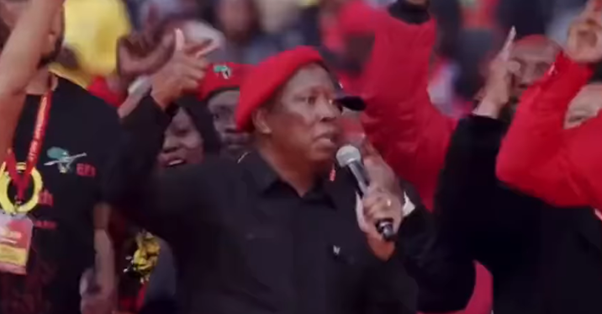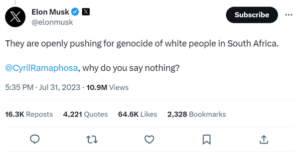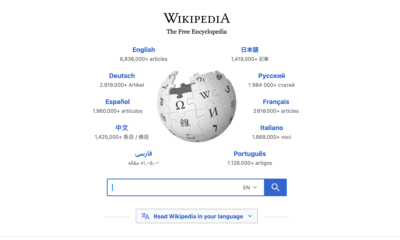
Banner

Crude and violent: ADL condemns ‘Kill the Boer’ song
The Anti-Defamation League (ADL), an international organisation that combats antisemitism and other forms of racism, has criticised Julius Malema and the Economic Freedom Fighters (EFF) after he led a stadium full of EFF members in singing Kill the Boer on 29 July complete with shooting actions and sound effects.
However, though the Equality Court in Johannesburg ruled in August 2022 that the song wasn’t hate speech or incitement, the case has now gone to the Supreme Court of Appeal and will be argued on 4 September.
The ADL, a global leader in combating antisemitism, countering extremism, and battling bigotry, issued a statement on 9 August in response to the debate over the song. Jonathan Greenblatt, the chief executive and national director, wrote, “While it’s a historic protest song that called for the dismantlement of apartheid in South Africa, its crude lyrics could be interpreted as a call for violence.
“At a time of intensifying political tension worldwide, we see time and again that words matter, and people, especially those in public life, should refrain from expressions that invoke the threat of violence,” he said. “Such rhetoric can prompt real-world consequences. This is true in the physical world. This is true on social media, including X. It has no place.
“At the same time, baseless claims of ‘white genocide’ have been made by right-wing extremists in the United States, particularly white supremacists, for years,” said Greenblatt. “Such wild charges have been used to excuse hate, justify harassment, and to rationalise violence. This is an issue the ADL has tracked for decades – and we’ll continue to call it out.”
The ADL statement appears to have been made in response to Elon Musk, the owner of X, formerly known as Twitter, calling on the organisation to comment. “They are openly pushing for genocide of white people in South Africa,” Musk posted on 31 July. Addressing South Africa’s president, he wrote, “@CyrilRamaphosa, why do you say nothing?”

On 4 August, Musk posted, “Why do you say nothing, @ADL?” Four days later, he wrote, “They absolutely mean literal genocide. Why are organisations like @ADL silent?” On 9 August, he wrote that he was “calling out NY Times & ADL in particular”. The ADL then released its statement.
However, local commentators say that, if anything, the ADL’s statement was “too soft”.
“Regarding the ADL statement, it’s important to draw a distinction between white genocide and farm murders,” says advocate Mark Oppenheimer, who represented AfriForum in the Equality Court case. “There’s a danger in collapsing those two things. Every serious player in South Africa acknowledges that there’s no white genocide. But the fact that there’s no white genocide doesn’t mean that there isn’t a serious problem with farm murders – farmers are killed in disproportionate numbers, often the killings involve extreme torture, and the words ‘Kill the Boer’ are sometimes written in blood on the walls.”
Oppenheimer, who appeared in the Supreme Court of Appeal and the Constitutional Court in a series of cases to determine the boundary between freedom of expression and genuine hate speech, says the song Kill the Boer is clearly aimed at white Afrikaners and at farmers in circumstances when they are dealing with high levels of real-world violence. So the song is condemnable on that basis.
“The ADL statement describes it as an anti-apartheid song,” says Oppenheimer. “However, the song was first sung in 1993, at a time when apartheid was in its dying days. So, to give it this mantle of a song that was used to dismantle the apartheid regime is a dangerous thing to do when really, it’s used to persecute an ethnic minority.
“The fact that even Elon Musk, who is widely regarded as one of the most pro-free-speech people in the world, thinks that the song is objectionable, demonstrates how dangerous it is. This particular speech is an incitement of violence. It’s extreme.
“It’s interesting to note that the global reaction to Julius Malema singing Kill the Boer at a stadium filled with 90 000 people is so strong. People are horrified that the leader of the third biggest political party in the country would do that. There’s a genuine problem with the speech, and the global community is recognising that.
“It’s a pity that the local press has tread so softly on the issue and that it has given Malema so much slack that it requires a global response for local writers to acknowledge how deeply disturbing the chant is.”
Head of strategic engagement at the Institute of Race Relations, Sarah Gon, says, “Whether Kill the Boer and Julius Malema’s machine gun antics play a role in farm murders is very difficult to tell. But the strand that has always run through Malema’s politics is racism – a hatred of whites. He has clearly decided that encouraging hatred of whites is a ‘vote catcher’ and his path to political glory.”
She believes the ADL’s emphasis should have been on condemning this racism. “Given how serious the situation is in South Africa – the nature of the torture and killings [in farm murders], and the effect they may have on food security – to over-emphasise American white supremacy was, to say the least, unfortunate.
“It may be a historic struggle song,” she says, “although the only reference I could find to it being sung was by African National Congress [ANC] activist Peter Mokaba at a memorial service for Chris Hani in 1993. The circumstances were understandable. The next record we have of the song being sung was at Peter Mokaba’s own funeral in 2002. Thereafter, the song has mainly been the domain of Malema both as ANC Youth League leader and EFF ‘commander-in-chief’. The song is now a racist blight on the country. Its purpose for the struggle has passed.
“Malema intended for the rally to have worldwide reach,” she says. “The huge attendance, the theatricalities of red attire, and Malema’s image as Mussolini-lite on the podium were, to say the least, disturbing.” Therefore, she thinks that “the ADL didn’t read the situation properly. The claim as to whether farm killings amount to genocide or not was secondary to denunciation of racism.”
Professor Karen Milner, the national chairperson of the South African Jewish Board of Deputies (SAJBD), says, “With the 2024 elections around the corner, we’re seeing an intensification of dangerous vitriol. We call on our politicians to use words responsibly, especially in these highly volatile times. It has always been the SAJBD’s position that rhetoric has consequences, and words matter.”











Jessica
August 17, 2023 at 4:46 pm
Too-little-too-late lip service, primped up with vague and feeble mouthing of historical apologetics don’t amount to condemnation. Sounds more like damage control and self-aggrandizing rhetoric after the event.
Jason Scott
June 28, 2024 at 6:43 pm
I personally support Julius Malema in the singing of this song, it is our right to sing this song, and no white must ever challenge it. What people deliberately choose to not understand that the main objective of the anti-apartheid struggle was the return of the land to the black majority. To this day, the land rests in the hands of the whites. This is not racism, it’s the truth. The struggle is not over it still goes on, the meaning of the song remains the same, we are mobilising our people against colonial patterns of land ownership. We want to share the land with white people, but if this trend where white people get richer and black people get poorer as a result, people are literally going to die, because the poor and the downtrodden are getting impatient, they have been abused for 372 years, how much abuse can people suffer? Our trauma will be unleashed if the land is not returned, and people will die. This is a reality that we should all strive to prevent, and it starts with equal redistribution of the land.